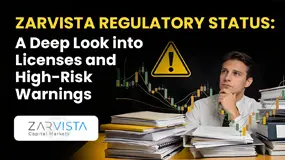Abstract:The FSMA has sounded the alarm on a “new wave of fraudulent trading platforms” that rely on pyramid schemes to sustain payouts. According to regulator observations, these schemes allow small withdrawals at first in order to build trust, then use excuses to block larger withdrawal attempts. Eventually, when recruitment of new participants falters, the platform vanishes with all funds, leaving victims empty‑handed.

The FSMA has sounded the alarm on a “new wave of fraudulent trading platforms” that rely on pyramid schemes to sustain payouts. According to regulator observations, these schemes allow small withdrawals at first in order to build trust, then use excuses to block larger withdrawal attempts. Eventually, when recruitment of new participants falters, the platform vanishes with all funds, leaving victims empty‑handed.
Moreover, the FSMA notes that many of these platforms offer so‑called “affiliate programmes,” which exhibit classic pyramid characteristics: early investors are paid using the deposits of newer participants rather than genuine trading profits
How the Pyramid Scheme Works in Fake Trading Platforms
- Initial Deposits and Simulated Gains
Victims are typically enticed by promises of rapid returns on modest deposits (often as low as €250). The trading interface is then manipulated to display fabricated gains, reinforcing the illusion that the platform is profitable.
- Recruitment of New Investors
To sustain payouts, the platform encourages users to recruit friends or family, usually through referral bonuses. Since there is no real revenue generation, these fresh deposits are used to pay earlier participants, perpetuating the cycle.
- Small Withdrawals to Build Trust
Early on, the platform may process small withdrawal requests—sometimes up to a few hundred euros—to demonstrate legitimacy. This creates confidence and convinces victims to reinvest larger amounts or recruit others.
- Blocking Large Withdrawals
When investors attempt to withdraw significant sums, the platform invokes fabricated “processing fees,” “tax charges,” or “additional verification” requirements to stall or outright deny the payout. These excuses serve to buy time while the pyramid still needs fresh funds.
- Collapse and Disappearance
Once the flow of new investor money dries up, the operators shut down the website, delete contact channels, and vanish—taking all client funds with them. Victims are left without recourse, as these entities often operate outside any regulatory framework.
How to Tell the Red Flags
- Unrealistic Return Promises: Any claim of double-digit returns within days or weeks should raise suspicion.
- Lack of Regulation: Verify whether the platform is registered and regulated by a recognized authority (e.g., FCA, ASIC). FSMA-flagged sites typically score very low on credibility assessments, such as WikiFXs ratings.
- Opaque Fee Structures: Legitimate brokers are transparent about spreads, commissions, and withdrawal fees. Hidden or changing fees are telltale signs of a scam.
- Pressure to Recruit: Pyramid schemes incentivize bringing in new members. If referrals yield bonuses or higher returns, tread cautiously.
Conclusion
Pyramid-style fake trading platforms thrive on deception, using early small payouts to hook victims before blocking larger withdrawals and ultimately disappearing with investor funds. Confirm regulatory status, scrutinize withdrawal policies, and be wary of high-pressure tactics. In the event of suspected fraud, report to WikiFX and share your experience to help protect the wider trading community.

Disclaimer:
The views in this article only represent the author's personal views, and do not constitute investment advice on this platform. This platform does not guarantee the accuracy, completeness and timeliness of the information in the article, and will not be liable for any loss caused by the use of or reliance on the information in the article.









